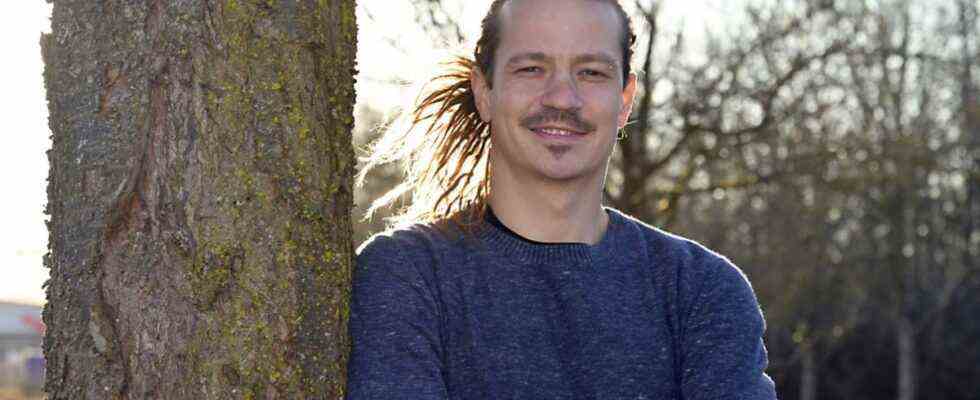Paul Gantzer is a happiness psychologist, world explorer, dropout and lecturer. For years he has traveled the continents to find out if “the world is really as evil as they say”. His conclusion: no way. He has met many people and projects that give him courage. He would like to share these experiences in lectures he gives at adult education centres. The SZ spoke to the son of Peter Paul Gantzer, a member of the SPD for many years, about happiness and how he, as a political person, wants to change society for the better.
SZ: What is it that makes you happy? Were you able to find that out on your travels alongside your studies?
Paul Gantzer: There are two essential aspects that are crucial for a person’s happiness and they have constantly accompanied me on my travels: freedom and self-determination on the one hand and the connection to other people on the other. Humans need both to be happy.
Sometimes these contradict each other, right?
Yes, I can say that from experience. On one of my round-the-world trips I always moved east and I never got to see the people I met along the way. I felt very strongly how lonely freedom can feel.
In which countries have you experienced strong ties?
I was particularly impressed by Iran. People stood there together and talked for hours, although they had never seen each other before. I also felt very comfortable in the South American countries. The mentality there is very different from ours. Unfortunately, we are often very isolated here and that makes you sick, and it has been proven that it even kills. Isolated people die earlier.
You grew up with politics. But you chose a completely different path than your father in order to do something for society. Why?
I’m a very political person. It’s important to me what’s happening in the world, I got that a lot from my father. But my approach is different. Politics always means side to side. My philosophy is to create unity and not build a front. I’m more the psychologist who wants to work holistically.
You did your Masters with a focus on Positive Psychology in the Netherlands. What can that mean?
Positive psychology differs from conventional psychology in that it is not oriented towards deficits. Instead of looking at what illness is and what makes you ill, she focuses on what happiness actually is and how one can become happy.
What does this mean for therapy practice?
The therapy does not start when you are in a crisis, but in the phase in which you feel good. Methods are developed that enable more resilience. You also learn how to take advantage of the opportunities that come with coming crises. It’s a preventative method.
How do we become happier?
This is a great collective task. It is also not a purely national question, it will be about global changes. We must rebuild bridges, not fronts. We have to say goodbye to power structures and competitive thinking. Not just to meet our basic psychological needs. Competition between countries also makes it impossible to find solutions to the ecological disaster that threatens our livelihoods.
What can the change look like locally? A lot is happening here, especially when it comes to ecology. Cooperative concepts in agriculture, for example, where farmers and consumers come together.
That’s where it has to go. It’s a big problem that everything is very monopolistic and people are left behind. I hope that people will take matters into their own hands again and organize themselves locally. In small communities, in small organizations. Where you know each other, where you feel each other. And that problems are solved locally.
Is that then the synergy of the two aspects of self-determination and connectedness? These concepts make it possible for people to live the way they want, precisely because they live together.
Exactly. The neurobiologist Gerald Hüther also speaks of this. He calls this “individualized society”. Communities where the two basic needs are met. Where the individual finds connection and can contribute to society in a self-determined manner. And there are already many approaches. I hope they can thrive and not get blocked.
They describe themselves as dropouts. What is your life like at the moment?
I feel like I never stopped traveling. I’m only in Munich for three months, most of the time I live in my bus or in a collective in Hungary, we have our own little island there. A colorful community of many great people from all over the world. Young, old, families with children. Lots of girl power, which I like. In the meantime, they even know my parents well there, who come to visit a couple of times a year.
Feeling like you’re always traveling, that sounds great. What was a particularly formative experience that you had on your travels?
In Varanasi, India, I witnessed the death rituals. How people say goodbye to their loved ones who have passed away. They burn the dead on the river bank. I was very touched by how the topic of death was treated as something unavoidable there. You cannot take anything material with you after death. In the end, it’s the memories of valuable experiences and encounters that really count.

